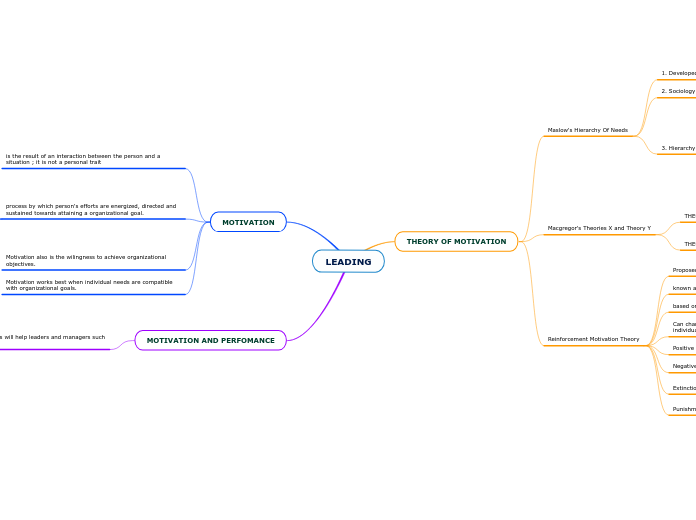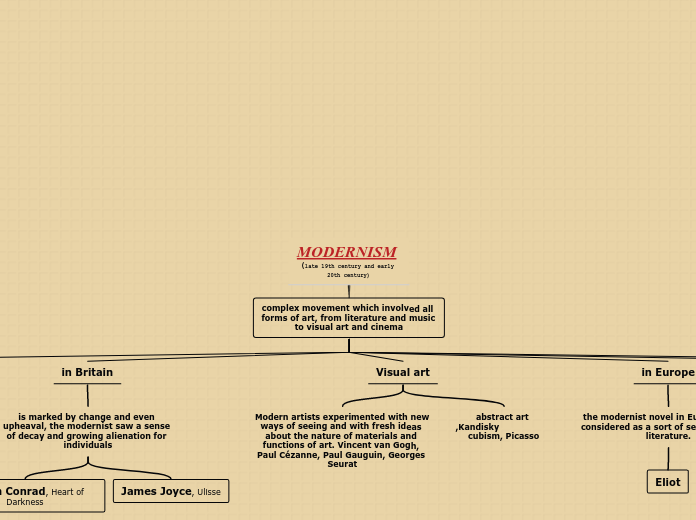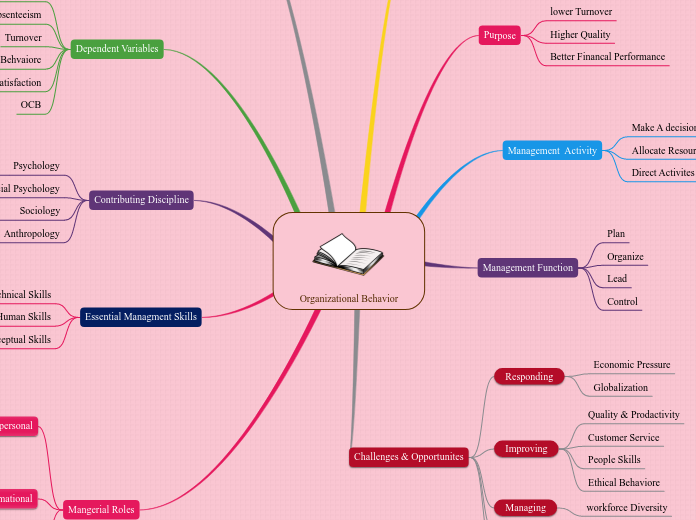by Mariah Adilah 3 years ago
260
Mind Mapping Mariah Adilah (Leading - Motivation )
Reinforcement Motivation Theory, proposed by B.F. Skinner, emphasizes altering behavior through rewards and punishments, aligning with Behaviorism or Operant Conditioning. This theory includes positive reinforcement via rewards, negative reinforcement through avoidance, and punishment by applying undesirable consequences.









